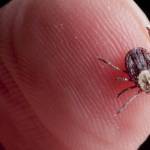Successful Treatment for Piroplasmosis in Horses

Piroplasmosis, a disease spread by ticks that bite an infected horse and then introduce tainted blood into other equines, is rare in the United States though it is common in Mexico and some other countries. An outbreak in Texas a few years ago affected about 80% of the horses on one large ranch. The outbreak was traced to cayenne ticks.
The infected horses were treated experimentally with imidocarb dipropionate, a drug used in dogs and cattle but previously untried against piroplasmosis in horses. Horses were given four injections spaced three days apart. This treatment eliminated the disease-causing parasite in all but one of 25 horses in the first sample group. That horse recovered after a second round of treatment.
In the past, horses with piroplasmosis became lifetime carriers of the disease and had the potential for spreading the infection to other horses. If treatment with imidocarb dipropionate can be proven safe and effective for use in equines, it will be a welcome breakthrough in controlling this disease. Further testing will be necessary to establish dosage guidelines, as there is a narrow range of safety with this product.








